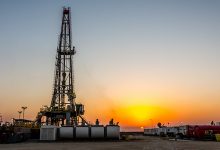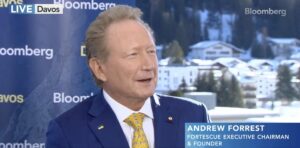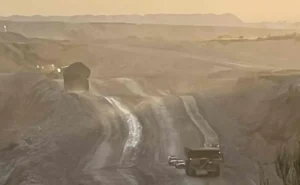A new research report produced by the CISRO, but funded by the gas industry, has claimed that gas fracking activities make virtually no contribution to in air, soils and water pollution.
The report has been leapt upon by the Morrison government, who will now use the report to justify rolling out the red carpet for an expanded of fracking industry in Australia.
The research report has been produced by the CSIRO’s Gas Industry Social and Environmental Research Alliance, which serves as a partnership between Australia’s premier public research institution and the gas industry.
The research project monitored air, water and soil contamination across six coal seam gas operations in Queensland’s Stuart Basin over a period of six months. The study fund that “hydraulic fracturing operations had little to no impacts on air quality” and that hydraulic fracturing chemicals were not detected in water samples collected around the gas wells.
The study did not look at the impacts of fracking operations on human health, or on emissions, which were ruled to be out of scope for the study, instead focusing on direct measurements of pollutant levels.
The findings prepared by GISERA didn’t conclude that fracking activities were completely without pollution, but that the pollution that was caused by fracking, such as chemicals used to breakdown geological formations and release gas, subsided over time.

While the research found that there were elevated levels of contaminants immediately after fracking operations took place, this contamination apparently returned to normal levels within six weeks.
“This new research provides valuable data about hydraulic fracturing in coal seam gas formations in the Surat Basin, Queensland,” GISERA director Dr Damian Barrett said.
“Previously, the only information about hydraulic fracturing was from overseas studies in quite different shale gas formations. Clearly governance, industry regulation and operational integrity are crucial in managing risk and potential impacts of hydraulic fracturing.”
The management of the CSIRO branded body is heavily stacked towards the fossil fuel industry, with a nine person national research management committee consisting of five gas industry representatives, three CSIRO directors and one representative of the federal resources department.
The industry members, which include gas producers Santos, AGL, Origin Energy, Australia Pacific LNG and Pangaea Resources, provide almost half of GISERA’s $35.1 million research funding budget.
GISERA has previously produced research that showed that Australia’s LNG production fell on the ‘low end’ for fugitive emissions, and argued that Australia’s gas exports may reduce greenhouse gas emissions when displacing coal use, but without assessing the scenarios where a gas for coal swap is made.
Groups like The Australia Institute have criticised the arrangement, saying that GISERA represents a fundamental conflict of interest, that compromised the research it presented.
“GISERA has a record of this type of failing. In a previous 2014 survey of methane leakage of CSG wells, the sample wells “were selected on an ad hoc basis in the order that companies agreed to participate.” However this time the fundamental question of how the wells were selected is not addressed at all,” The Australia Institute principle advisor Mark Ogge told RenewEconomy.
“The results are further diminished because samples were only taken over 6 months. Contamination can occur any time over the lifetime of the well, or beyond. Not all fracking fluid is recovered and it can migrate through groundwater systems over a long period of time, as can contaminates from disrupted coal seams.”
“GISERA has a serious conflict of interest at its core. While it habitually represents itself and its reports as the CSIRO, it is not. It is an alliance of the 4 of the largest coal seam gas companies operating in Australia: APLNG, Origin, QGC and Santos, with the CSIRO. These companies have an enormous vested interest in not finding negative impacts from fracking,” Ogge added.
Federal resources minister Keith Pitt welcomed the findings, expressing hope that it would lead to further gas developments across Australia.
“It dispels the misinformation anti-gas activists have been spreading about the CSG industry, which is poised to deliver thousands of new jobs and millions of dollars in new revenue,” Pitt said.
“The Coalition Government is committed to supporting the resources sector, which will play an important role in driving our national economic recovery as we emerge from the COVID-19 pandemic.”
“Reports like the one released today confirm the steps taken by the industry to protect the local environment are working and I am hopeful will attract more resources companies to consider investing in CSG and other unconventional gas developments,” Pitt added.
Fracking has been highly controversial across most regional communities in Australia, with fears that the lack of control and understanding of the impacts of fracking activities put farming communities at risk of contamination.
In March, the Victorian Labor government introduced permanent ban on fracking in the state. While Victorian premier Daniel Andrews lifted a moratorium on onshore gas exploration, he said his government would enshrine a permanent fracking ban in the State’s constitution, saying it was doing so “to protect farming communities, and our huge food and fibre sector.”
RenewEconomy and the Smart Energy Council will be co-hosting a “virtual conference” on May 6, focusing on a renewables-led economic recovery, featuring industry leaders, analysts and advocates. More information and registration here.
RenewEconomy and its sister sites One Step Off The Grid and The Driven will continue to publish throughout the Covid-19 crisis, posting good news about technology and project development, and holding government, regulators and business to account. But as the conference market evaporates, and some advertisers pull in their budgets, readers can help by making a voluntary donation here to help ensure we can continue to offer the service free of charge and to as wide an audience as possible. Thankyou for your support.







